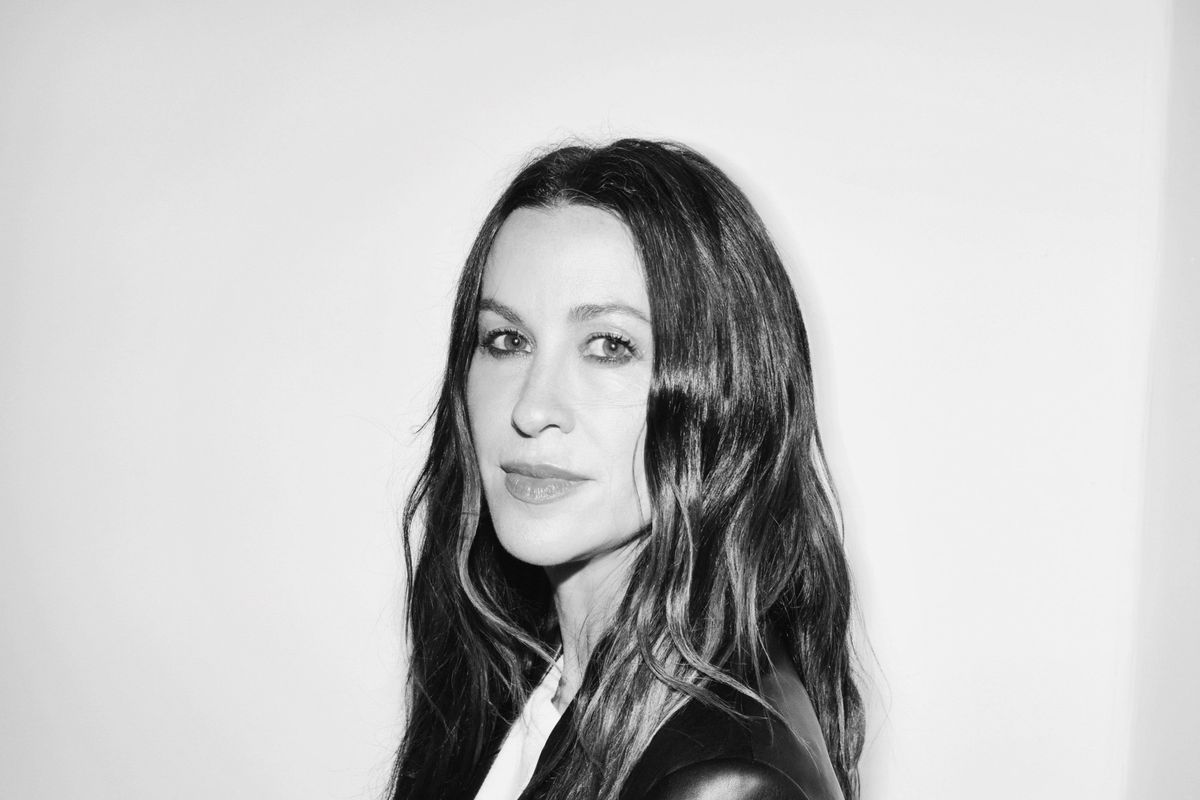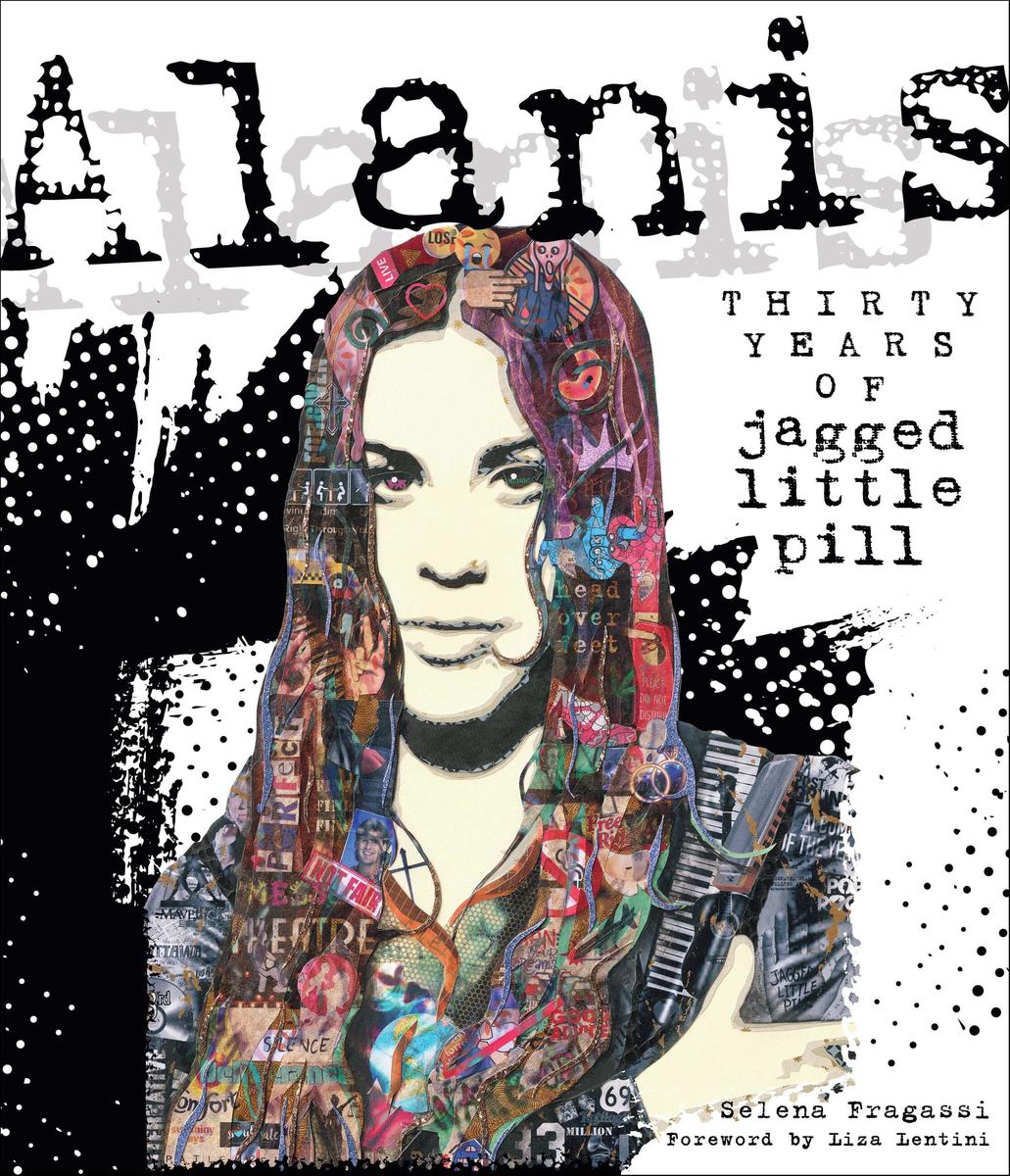It has been thirty years since a Canadian songwriter with a ferocious mezzo-soprano and a journal full of raw, uncompromising honesty upended the music industry, redefining what “angry” and “feminist” could look like in the mainstream. Now, Alanis Morissette, who turns fifty-one this year, stands at an unlikely intersection of cultural reverence and contemporary relevance, celebrating a legacy that transcends mere nostalgia. She is simultaneously an elder stateswoman of rock, a dedicated advocate for trauma-informed self-care, a mother of three, and a discerning voice in the world of high fashion. This is not the typical trajectory of a ’90s icon, but then again, nothing about Morissette’s journey has ever been typical. In a rare conversation—far more akin to a deep-dive therapy session than a celebrity chat—she reflects on the quiet vindication of her so-called “psychobabble,” the vital new sisterhood she is building for the next generation of artists, and why her greatest desire in fashion is simply to be able to “run and throw a bunch of babies over my shoulder.” She remains, unequivocally, the boss, ready to guide the world toward a more empathetic, and slightly less safe, kind of freedom.
The Quiet Triumph of ‘Psychobabble’
Alanis Morissette often speaks about her “karmic assignment,” a calling she embraced three decades ago that placed her on the front lines of emotional and psychological transparency. In the mid-nineties, her lyrical explorations of pain, rage, and complex vulnerability were often derided by a bewildered media as “psychobabble.” Now, standing at the 30th anniversary of her seminal album, Jagged Little Pill, the irony is palpable: her language has become the lingua franca of mainstream wellness. She is routinely invited to speak at symposiums and summits on trauma, addiction, and the burgeoning science of Internal Family Systems (IFS), a psychotherapeutic model that views the mind as composed of distinct “parts”—an idea she articulated, in spirit, decades ago.

“I decided long ago to stay the course with my psychobabble,” she says with a wry smile, acknowledging the feeling of validation that comes from seeing her deepest beliefs embraced by the culture at large. For Morissette, this is not just personal vindication but a sign of collective progress. She explains that the enduring power of her 30-year catalogue lies in its uncompromising fidelity to a consistent internal value system. “I’m grateful I can still perform this work without compromising myself,” she states. “I still believe every lyric, value systems-wise and in terms of passions.” The raw, journal-entry honesty that initially provoked such discomfort in the public sphere—who, she muses, struggled to know what to do with a young woman they couldn’t control or objectify—is precisely what has lent her work a defiant, timeless quality.
We Need Clothes to Run and Throw Babies
While her legacy is rooted in music and lyrical honesty, Morissette’s relationship with fashion has always been one of quiet rebellion, using androgyny and anti-glamour to reject the suffocating femininity imposed on her as a teen pop star. Today, her perspective on clothing is grounded firmly in practicality, comfort, and the concept of useful beauty, offering a compelling critique of high fashion’s frequent detachment from the reality of women’s lives.

Her recent attendance at the debut of a new creative director for an iconic French house—a moment where fashion writers praised the “audacity” and “rigidity combined with chaos”—provided a platform for her unvarnished view. “We want to be breathtaking as women. We also want to be comfortable,” she asserts, summing up her non-negotiable criteria. She continues with the kind of specific, earthy detail one rarely hears in a couture critique: “We want to be able to run and throw a bunch of babies over our shoulder and maybe breastfeed them. So, we need clothes to be able to do that.” It is a powerful, simple demand: clothes must serve the complexity of a woman’s life, not restrict it. She appreciated the collection’s embrace of duality—the “well-placed rigidity” combined with “scary freedom”—seeing in the juxtaposition of structure and flow a reflection of her own emotional and artistic philosophy. She remains an enthusiast for the risk in design, believing that a reluctance to challenge the status quo leads to “too restrained,” “too safe” art.
On the Mythology of the Isolated Artist
One of the most profound shifts in Morissette’s perspective since the release of her breakout album is her re-evaluation of connection, particularly within the long-term commitment of marriage. For years, one of her most-analyzed songs, “Not the Doctor,” contained the uncompromising dictum that in a partnership, “Your stuff is your stuff. My stuff’s my stuff. Never the twain shall meet.” It was the ultimate anthem of self-sufficiency.
Fifteen years into her own marriage, she now looks back at that lyric with a grimace. “I’ve been married 15 years, I’m like, Oh, the twain shall meet.” The process of true, long-term connection has taught her the fallacy of total isolation. She is now an outspoken proponent of couples counseling, seeing it not as a remedy for failure but as a non-negotiable tool for relationship health. Critically, she insists that her therapists must be “trauma-informed” and “addiction-informed.” For Morissette, who has long been candid about her own struggles with work, sex, love, and shopping as “relief-seeking measures that kill you eventually,” a deep understanding of these destructive patterns is paramount. The journey from the lone warrior to the mutually-supported partner is a cornerstone of her present life, one that requires consistent, deliberate effort—a “hard no” to emotional avoidance.
The Sisterhood She Searched For
The lack of genuine camaraderie among female artists during the 1990s is a shadow that Morissette is actively working to dispel for the current generation. She recalls being one of the only women on festival bills—sometimes one of only two or three, surrounded by over three hundred men—and being “super gaslighty” moments where her peers would attempt to dismiss her artistic relevance. “The pervasive messaging was very much: You pick a lane, and you stay in it. And if you step out of your lane, it’s career suicide, which is total bullshit.” She remembers yearning for a female mentor, a “Joan” (as in Joan Jett, whom she now refers to as a superheroine and eventually befriended) who would simply say, “Yeah, that is bullshit!”

Now, having achieved the status of an icon, Morissette is deliberately filling that role for others. She mentions young artists like Chappell Roan and Olivia Rodrigo as those she watches with protective empathy. She understands “what it’s like to be inside the white-hot heat of fame and notoriety” and has made a concerted effort to be accessible. “When I’m in a position where it’s flipped and maybe a young artist will have my phone number, I make sure that I respond like a motherfucker. I want to be available for those who may need me.” This dedication to establishing a genuine sisterhood is a direct, empowering response to the predatory, isolating industry she navigated in her twenties, positioning her as a vital, supportive matriarch for the current wave of fearless, emotionally honest female songwriters.
Art as the Leader, Service as the Guide
As she moves forward, Morissette is focused on her creative output, confirming that a new album is currently “in the works.” Her career evolution has seen her move beyond the role of a mere pop star to that of a philosophical guide—a development she consciously fosters. She believes her place is now not just on the stage, but also as a “guide than a star,” encouraging others to claim their voice and “take up space.”
This philosophy underpins her broader view of the culture. When asked about leadership, she offers a powerful counter-narrative to traditional models, suggesting it is not “the meek that will inherit the earth,” but rather “the sensitives who are attuned to subtlety and nuance.” She argues that these are the people who possess the empathy and visionary capacity necessary to lead. Morissette is “not really that interested in following” the “so-called leaders we have right now in politics or otherwise… into any towering inferno.” Instead, she believes it is the artists—those who dare to express the messy, complex truth through music, movement, or photograph—who “will lead us home.” Her ongoing journey is thus defined by this sense of service: maintaining her creative integrity, building a supportive community, and continuing to use her own unapologetic vulnerability as a blueprint for empowerment.





